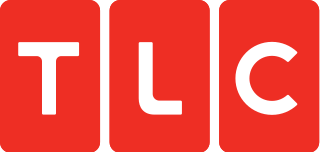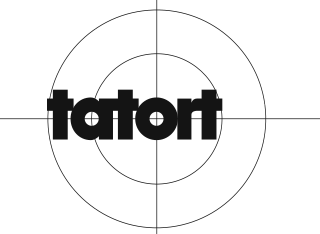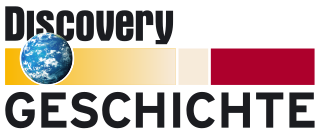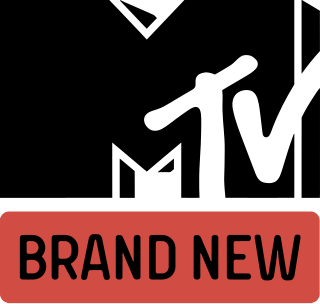Related Research Articles
Discovery Channel is an American cable channel owned by Warner Bros. Discovery, a publicly traded company run by CEO David Zaslav. As of June 2012, Discovery Channel was the third most widely distributed subscription channel in the United States, behind now-sibling channel TBS and The Weather Channel; it is available in 409 million households worldwide, through its U.S. flagship channel and its various owned or licensed television channels internationally.

TLC is an American cable television channel owned by Warner Bros. Discovery. First established in 1980 as The Learning Channel, it initially focused on educational and instructional programming. By the late 1990s, the network began to pivot towards reality television programming involving lifestyles, home renovations, family life, personal stories, and in some cases competition series—to the point that the previous initialism of "The Learning Channel" was phased out.
Euronews is a European television news network, headquartered in Lyon, France. The network began broadcasting on 1 January 1993 and aimed to cover world news from the European perspective.

Deutsche Welle, sometimes abbreviated to DW, is a German public, state-owned international broadcaster funded by the German federal tax budget. The service is available in 32 languages. DW's satellite television service consists of channels in English, German, Spanish, and Arabic. The work of DW is regulated by the Deutsche Welle Act, meaning that content is intended to be independent of government influence. DW is a member of the European Broadcasting Union (EBU).
The Radio-télévision belge de la Communauté française is a public service broadcaster delivering radio and television services to the French-speaking Community of Belgium, in Wallonia and Brussels. Its counterpart in the Flemish Community is the Dutch-language VRT, and in the German-speaking Community it is BRF.
Arte is a European public service channel that promotes cultural programming.

Boomerang is an American cable television network and streaming service owned by the Kids, Young Adults and Classics division of Warner Bros. Entertainment, a subsidiary of Warner Bros. Discovery.

n-tv is a German free-to-air television news channel owned by the Bertelsmann Media's RTL Group. n-tv broadcasts news and weather every hour and half-hour in the morning. It also broadcasts magazine shows and documentaries.
VIVA was a German free-to-air music television channel, first broadcast on 1 December 1993. The channel was intended to compete against MTV Europe and was the first German-language music TV channel, while MTV was only broadcast in English until the introduction of MTV Germany in 1997. It was also supposed to focus more on German music and pop culture while MTV only broadcast anglophone music by artists mostly from North America, the United Kingdom, Ireland and Australia.

DW-TV is a German multilingual TV news network of Deutsche Welle. Focussing on news and informational programming, it first started broadcasting 1 April 1992. DW broadcasts on satellite and is uplinked from Berlin. DW´s English broadcast service is aimed at an international audience.

Tatort is a German language police procedural television series that has been running continuously since 1970 with some 30 feature-length episodes per year, which makes it the longest-running German TV drama. Developed by the German public-service broadcasting organisation ARD for their channel Das Erste, it is unique in its approach, in that it is jointly produced by all of the organisation's regional members as well as its partnering Austrian and Swiss national public-service broadcasters, whereby every regional station contributes a number of episodes to a common pool.

Hope Channel International, Inc. is a Christian lifestyle television network and is a subsidiary company of the General Conference of Seventh-day Adventists. The network operates globally, with 67 Hope Channels worldwide, each providing programs contextualized to the language and culture of their audience. Focusing on balanced, Christian living, Hope Channel programs cover topics such as mind, body, spirit, family, and community. Hope Channel is available on DirecTV channel 368 in the United States of America, Cable television, satellite, multiple channels are available via Roku, Apple TV, Amazon Fire TV, Android TV and Chromecast devices, Hope Channel app available at App Store for Apple users and at Google Play Store for Android users, via FaithStream and online at www.HopeTV.org.

Gems TV was a jewellery manufacturer and reverse auction TV shopping network headquartered in Chanthaburi, Thailand. It began its operations in October 2004 in the UK, and then expanded to Germany, America, Japan and China. Gems TV was formed from the merger of Thaigem Limited and Eagle Road Studios, which formed Gems TV UK Limited, which eventually became a subsidiary of Gems TV Holdings Limited when the company expended to other countries.
Groupe Canal+ is a French mass media company. It is owned and controlled by Vivendi and has a film library in excess of 5,000 films. Vivendi has sold some parts of Canal Plus to private investors which are still using the name of Canal Plus. It is headquartered in Issy-les-Moulineaux, in the suburbs of Paris.
Wine TV or Wine Network was a digital cable & satellite television channel that aired programming about Wine and Spirits. It was the only such channel in the world, featuring programming dedicated to wine lovers including shows about wine making, wine growing, wine selection, cooking with wine and many others. It also focused on wine culture with topics such as cigars, travel, fashion, entertainment and art & culture.
Television in Switzerland was introduced in 1950, with regular broadcasts commencing in 1953. People who live in Switzerland are required by law to pay a television licence fee, which is used to finance the public radio and television service SRG SSR. Since 1 January 2021, the Licence fee cost in all the linguistic regions of Switzerland is 355 CHF per year or 83.75 CHF quarterly, counting both radio and television licences. All licence fee payers are entitled under the law to services of equal quality. The fee is charged per household and not per person, with empty dwellings being exempt. The fee is determined by the Federal Council.

Discovery Geschichte was a German television channel focusing on history-related programmes owned by Discovery Networks Europe. The channel launched on March 31, 2005 on the Premiere platform.

Fox is a brand of television channels owned by Fox Networks Group, a subsidiary of the International Operations division of The Walt Disney Company. The brand was included with Disney's acquisition of 21st Century Fox in 2019. It shares its name with the Fox Broadcasting Company, a now un-affiliated American television network owned by the Fox Corporation, which was spun off from 21st Century Fox before the sale. With the exception of the channel in Turkey, which focuses on original programming, the international Fox channels generally focus on syndicated programming.

MTV Brand New was a 24-hour specialist music channel featuring new music videos, alternative and indie music available in the Netherlands. An Italian version of the channel launched on September 14, 2003. It also launched in Germany in 2011.
Pluto TV is an internet television service owned and operated by Paramount Streaming, a division of Paramount Global. Co-founded by Tom Ryan, Ilya Pozin and Nick Grouf in 2013 and based in Los Angeles, California, in the United States, and parts of the rest of the Americas, and Europe, Pluto is an advertiser-supported video-on-demand (AVOD) service that primarily offers a selection of programming content through digital linear channels designed to emulate the experience of traditional broadcast programming. The service's revenue is generated from video advertisements seen during programming within ad breaks structured similarly to those found on conventional television.